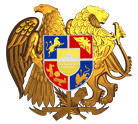Constitutional Guarantee For Investments
Armenia is a member of the following organizations: APCTT, BSEC, BSBTDB, CCC, CIS, EEC, EBRD, IFRCRCS, IFC, IMF, ISO, ITU, IPU, FAO, ECE, ESCAP, IAEA, IBRD, ICAO, IDA, IFAD, ILO, IOS, ICDO, ICAO, INTOSAI, IAPNTELSAT, INTERPOL, IOC, ITU, NACC, OIPO, OSCE, RAMSAR, UN, UNCTAD, UNESCO, UNIDO, MIGA, PCCNTBTO, UPU, WEC, WCO, WHO, WIPO, WMO, WOAH, World Bank/IDA, WTO (World Tourism Organization), WTO and the Council of Europe. Armenia also has observer status at ADB, NAM, and participates in NATO PFP.
The Partnership and Co-operation Agreement between the European Union and Armenia came into effect in July 1999. The Agreement aims to improve economic cooperation and trade within the region and with the European Union.
As Armenia is a member of MIGA it is possible to get MIGA guarantees to insure investment against political risk.
On December 10, 2002 Armenia joined the WTO.
Bilateral Investment Protection Agreements
Bilateral Treaties on Investment Promotion and Protection (BITs) have been concluded with 32 countries including: Argentina, Austria, Belarus, Belgium-Luxemburg economic union, Bulgaria, Canada, China, Cyprus, Egypt, France, Georgia, Germany, Greece, India, Iran, Italy, Israel, Kazakhstan, Kyrgyzstan, Lebanon, Qatar, Romania, Russia, Switzerland, Tajikistan, Turkmenistan, Ukraine, United Kingdom, United Arab Emirates, Uruguay, USA and Vietnam. BITs with Brazil, Czech Republic, Japan, Holland, Macedonia, Morocco, Slovenia and Jordan are under negotiation. Armenia is a signatory to the CIS Multilateral Convention on the Protection of Investor Rights.
Free Trade Treaty
Armenia has Free Trade Regimes with Georgia, Kyrgyzstan, Moldova, Russia, Tajikistan, Turkmenistan, and Ukraine. And Most-Favored-Nation Trade Regimes with Argentina, Bulgaria, Canada, China, Cyprus, EU, Iran, India, Hungary, Lebanon, Poland, Romania, Syria, Switzerland, Vietnam and USA.
Double Taxation Treaties
Double taxation treaties (DTTs) are in force with Belarus, Bulgaria, Canada, China, France, Georgia, Iran, Latvia, Lebanon, Lithuania, Romania, Russia, Turkmenistan and Ukraine. Treaties with Belgium, Egypt, Greece, Netherlands, Poland, Syria and Uzbekistan are subject to ratification. The number of DTTs is rapidly increasing.
Trade Liberalization
Today, Armenia has a liberal foreign trade regime with a simple two-band import tariff (at 0% and 10%), no taxes on exports, and no quantitative trade restrictions. Import, export, and domestic production licenses are required only for health, security, and environmental reasons. There are no limits on hard currency imports.
Armenia is a member of WTO from 2002. Since then, it has advanced rapidly in trade liberalization. The accession process is in the final stage.
The new Customs Code (in force since January 1, 2001) streamlines customs procedures and complies with WTO Rules (see www.customs.am).
Under the terms of free trade agreements, tariff exemptions are extended to goods traded between Armenia and Belarus, Georgia, Kyrgyzstan, Moldova, Russia, Tajikistan, Turkmenistan and Ukraine. Excise taxes are charged at various rates on the import or production of some goods, including alcohol, tobacco and petrol.
The investment and trade policies of Armenia are considered to be the most open in the CIS by international organizations. Foreign companies are encouraged to invest and are entitled by law to the same treatment as local companies, moreover they have certain advantages. Armenia's investment climate is continuously improving with a strong government commitment to attracting FDI, including refining the legislative framework.
The Law on Foreign Investment, adopted in July 1994, regulates foreign investment in Armenia. It provides guarantees to foreign investors and protects investors from changes in the business related laws for 5 years. According to the Law a "Foreign Investor" is any foreign company or citizen, a person without citizenship, an Armenian citizen permanently residing outside of Armenia, or an international organization that invests in Armenia. "Foreign investment" is any form of property, including financial assets and intellectual property, which is invested by a foreign investor directly in the territory of Armenia, in any economic or other venture.
Key sectors:
IT, Electronics and Precision Eng., Mining, Energy, Fine chemicals and pharmaceutecal, Jewelry and diamonts, Textiles and Closing, Food and drinks, Tourism
The information in this section is provided by the ADA

